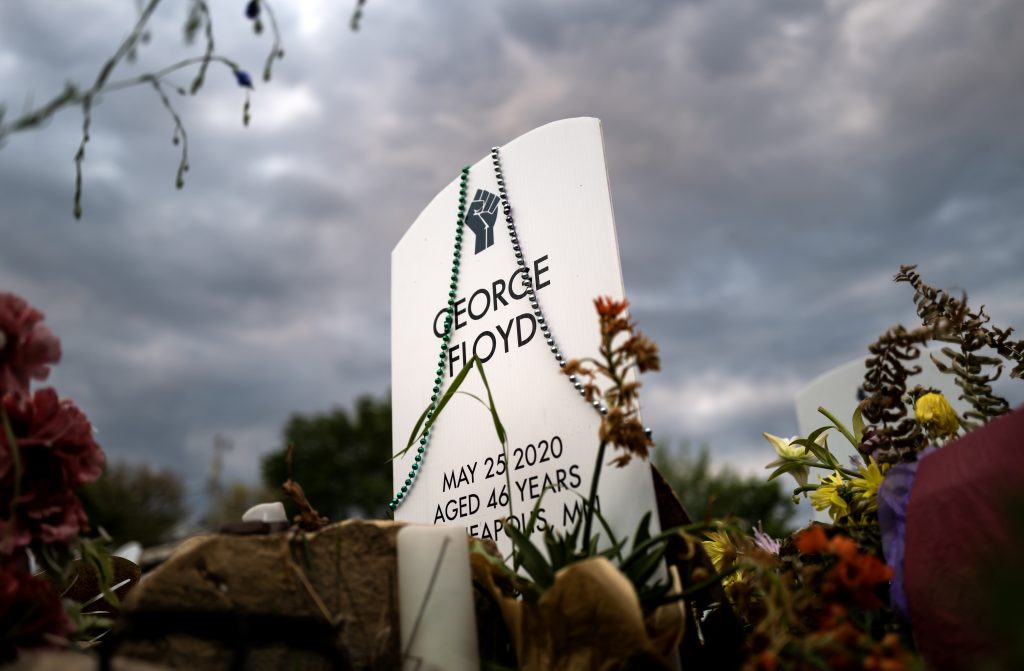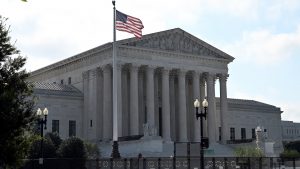5 years after George Floyd’s death, US drops policing investigations

The Trump administration is abandoning federal oversight of policing reforms initiated after George Floyd died under the knee of a Minneapolis police officer in 2020. Officials said local efforts can achieve the same goals of holding officers accountable for excessive use of force or racially motivated policing.
However, some of the cities investigated by the Biden administration want federal monitoring to continue. They vowed to continue on their own, if necessary, to address issues highlighted during a summer of protests over police violence in 2020.
Unbiased. Straight Facts.TM
Although the DOJ is now closing some investigations, Congress initially gave the agency the authority to investigate police abuses in 1994 after white officers beat Black motorist Rodney King in Los Angeles.
‘Failed experiment’
The Department of Justice announced it is asking federal judges to dissolve consent decrees that settled lawsuits against both Minneapolis, Minnesota, where Floyd died five years ago this Sunday, May 25 and Louisville, Kentucky, where officers killed Breonna Taylor on March 13, 2020.
The department will also close Biden-era investigations into the Louisiana State Police and law enforcement agencies in Memphis, Tennessee; Mount Vernon, New York; Oklahoma City; Phoenix, Arizona; and Trenton, New Jersey. The Biden administration’s published findings of misconduct by those agencies will be retracted.
“We are ending the Biden Civil Rights Division’s failed experiment of handcuffing local leaders and police departments with factually unjustified consent decrees,” Assistant Attorney General Harmeet K. Dhillon said in a statement.
Dhillon, who heads the civil rights division, said “overbroad” agreements had given power to “unelected and unaccountable bureaucrats, often with an anti-police agenda.”
She also said federal “micromanagement” of local police agencies “should be a rare exception and not the norm.”
The move follows other efforts by the Trump administration to dissolve diversity, equity and inclusion initiatives that followed Floyd’s murder.
‘Systemic violations’
Congress gave the Justice Department the power to investigate police abuses in 1994, after rioting broke out in Los Angeles, California, over the beating of Rodney King, a Black motorist, by white police officers.
The Biden administration launched 12 such investigations and finalized the consent decrees with Minneapolis and Louisville shortly before President Donald Trump took office in January.
Kristen Clarke, the Assistant Attorney General for Civil Rights at the Department of Justice during the Biden administration, said these investigations were not political or ideological. Instead, Clarke said, the cases were based on data and hard evidence, including body camera footage and information from officers involved in contentious encounters with citizens.
“To wholesale ignore and disregard these systemic violations, laid bare in well-documented and detailed public reports, shows patent disregard for our civil rights and the Constitution,” Clarke told The Associated Press.
However, the head of the nation’s largest police union said the investigations were ineffective.
Jim Pasco, the executive director of the Fraternal Order of Police, said that consent decrees “do not make any material positive difference in the relationship between police departments and the cities they serve.” He added, “In fact, to the contrary, it exacerbates the problem because it validates thinking in urban areas that the police are their enemy.”
Local response
Cities under consent decrees opposed the Trump administration’s decision to dismiss them.
Minneapolis will proceed as if the decree were still in effect, Mayor Jacob Frey said during a news conference on Wednesday, May 21.
“We’re doing it, anyway,” Frey said. “We will comply with every sentence of every paragraph of the 169-page consent decree that we signed this year.
“Minneapolis is serious about our commitment to police reform, even if the president of the United States is not,” Frey added.
In Louisville, Mayor Craig Greenberg said the city has already hired an independent monitor for the police department. Greenberg said her work will continue.
“We are moving ahead to continue implementing police reform that ensures constitutional policing while providing transparency and accountability to the public,” Greenberg said during a news conference. “I made a promise to our community, and we are keeping that promise.”
‘True reform’
Civil rights leaders, lawyers and families of those who died at the hands of police officers denounced the Trump administration’s attempt to drop the investigations.
“This move isn’t just a policy reversal,” Rev. Al Sharpton told the AP. “It’s a moral retreat that sends a chilling message that accountability is optional when it comes to Black and brown families.”
Taylor’s mother, Tamika Palmer, said the administration’s announcement upset and angered her. In a statement to WAVE-TV of Louisville, she said that without federal oversight, it’s up to citizens to make sure promised changes take place.
“This city deserves true reform, and the city needs to be committed to following through on every single item that they agreed to in the decree,” Palmer said. “It is up to the residents of this city to hold the police department and the mayor accountable — and the best way to do that is through our votes.”





